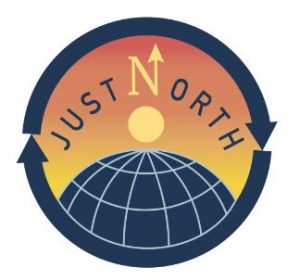Access to electric power and land are now key locational issues for the datacentre sector and most Nordic countries are pitching for their business. We use a comparative case analysis to illustrate several interrelated themes in Norway and Iceland, as both develop their datacentre sectors, but to date in differing ways.
Upham, Sovacool, Monyei
Access to electric power and land are now key locational issues for the datacentre sector and most Nordic countries are pitching for their business. We use a comparative case analysis to illustrate several interrelated themes in Norway and Iceland, as both develop their datacentre sectors, but to date in differing ways. In both, digitalisation and datacentres are supported financially through equity holdings and securitisation issued via bespoke investment firms. For datacentres, this finance backs commoditised packages consisting of land with pre-approved planning permission; access to low-cost, reliable, renewable power; and a range of built infrastructure and computing options. Seeking to benefit from the development of monetised, dependent, regional Information Technology ecosystems, states assist with regulatory adjustments and municipalities with supportive land use zoning. Given the deeply entrained and multifaceted nature of the sector, we use our cases to highlight relationships between datacentre financing, spatial planning and infrastructure development in the two countries and also the ways in which the sector may take differing development trajectories. Overall, we build on the developing literature that is revealing the material realities of ‘the cloud’.
Read the full article:
https://www.sciencedirect.com/science/article/abs/pii/S0962629822000312?via%3Dihub
JUSTNORTH
JUSTNORTH is a project designed to explore the multitude of ethical systems that coexist in the Arctic, as a starting point to assess the viability of new economic activities in the region. For the millions of people who live both inside and outside the Arctic and are affected by these economic activities, decisions are made through utilitarian ethical principles: viability of an activity is based on profitability and technical feasibility, with little regard to questions of whether it is ethically right or wrong for the impacted human populations or the environment. Global climate change has launched intense speculation on Arctic resources. Increasing geopolitical tensions among some of the Arctic states increases the importance of respecting different value systems while finding common values to help strengthen the links between Arctic and non-Arctic entities. Significant practice and policy gaps in existing Arctic economic activities have led to development that is unsustainable.
Through understanding current practices of development in the Arctic through the lens of 18 case studies, JUSTNORTH aims to develop conceptual frameworks, indices and a negotiation tool, for reconciling multiple ethics and value systems. These will provide a cornerstone for determining the viability of economic activities in the Arctic, as well as clarify policy, legal, and regulatory pathways for implementing ethic-based decision-making principles.
Global climate change has launched intense speculation on Arctic resources. Increasing geopolitical tensions among some of the Arctic states increases the importance of respecting different value systems while finding common values to help strengthen the links between Arctic and non-Arctic entities. Significant practice and policy gaps in existing Arctic economic activities have led to development that is unsustainable.
Through understanding current practices of development in the Arctic through the lens of 18 case studies, JUSTNORTH aims to develop conceptual frameworks, indices and a negotiation tool, for reconciling multiple ethics and value systems. These will provide a cornerstone for determining the viability of economic activities in the Arctic, as well as clarify policy, legal, and regulatory pathways for implementing ethic-based decision-making principles.
Project details
- Project title: “Toward Just, Ethical and Sustainable Arctic Economies, Environments and Societies”
- Funding scheme: European Union Horizon 2020 Programme (EU H2020, Grant agreement ID: 869327)
- Duration: 3 years (1 June 2020 – 30 November 2023)
- Project coordinator: Uppsala Universitet, Dr. Corine Wood-Donnelly
- Project website: www.justnorth.eu/
